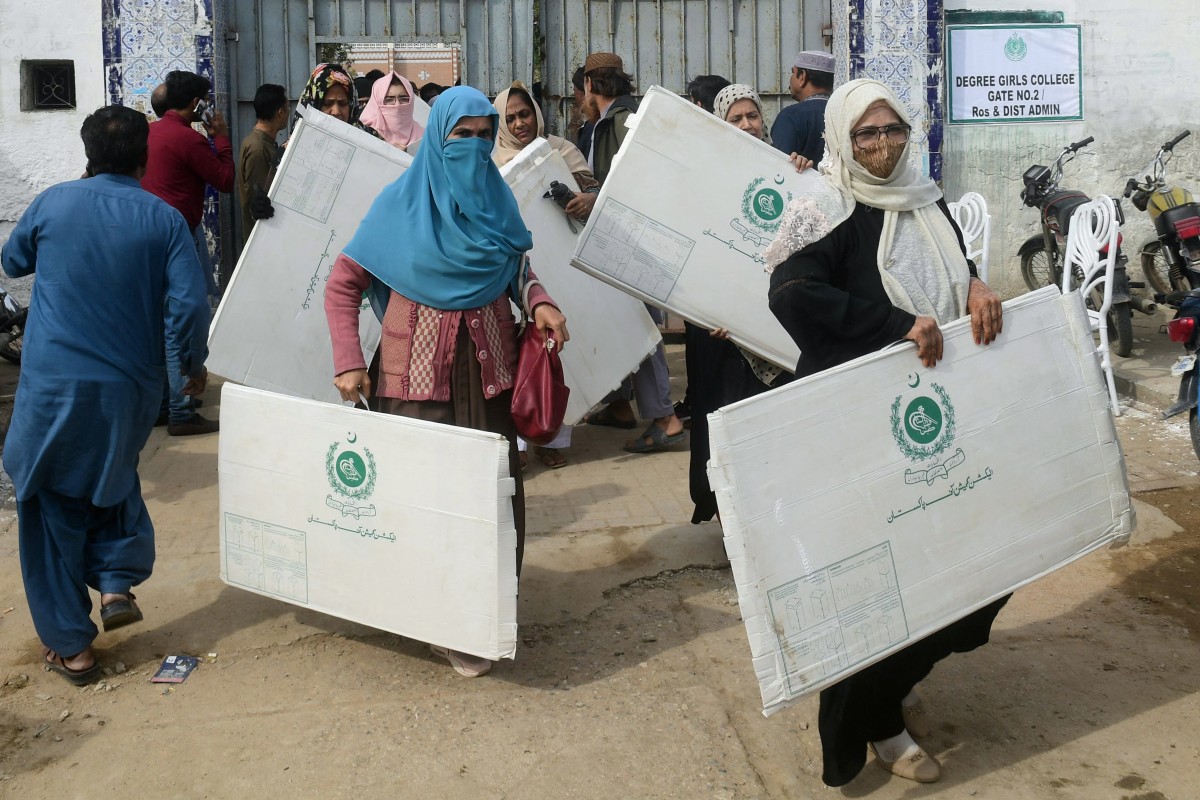Millions of Pakistanis vote Thursday in an election marred by violence that has killed dozens, allegations of pre-poll rigging, and the jailing of the country’s most popular politician, Imran Khan.
Pollsters have predicted a low turnout from the country’s 128 million eligible voters following a lackluster election campaign overshadowed by the hobbling of Khan’s Pakistan Tehreek-e-Insaf (PTI) party by the military-led establishment.
The Pakistan Muslim League-Nawaz (PML-N) is expected to win the most seats in Thursday’s vote, with analysts saying its 74-year-old founder Nawaz Sharif has won the blessing of the generals.
On Wednesday, at least 28 people were killed and more than 30 wounded by two bomb blasts outside the offices of candidates in southwestern Pakistan, in attacks that were claimed hours later by the Islamic State group.
But authorities insisted violence would not interrupt voting.
“Every effort to sabotage the situation of peace and security will be thwarted,” caretaker prime minister Anwaar-ul-Haq Kakar said following the blasts.
The foreign ministry said the land borders with neighbors Iran and Afghanistan would be closed to all traffic on Thursday as a security measure.
The country’s 90,000 polling stations open from 8:00 am (0300 GMT) until 5:00 pm, with more than 650,000 army, paramilitary and police personnel providing security.
The election figures are staggering in the nuclear-armed nation of 240 million people — the world’s fifth most populous.
Nearly 18,000 candidates are standing for seats in the national and four provincial assemblies, with 266 seats directly contested in the former — an additional 70 reserved for women and minorities — and 749 places in the regional parliaments.
Tables turned
Thursday’s election has a similar air to the 2018 poll, but with the tables turned.
Then, it was Nawaz Sharif who was disqualified from running because of a string of convictions for graft, while Khan swept to power with the backing of the military, as well as genuine support.
“The history of Pakistan elections is chequered with allegations of rigging but also favoritism for a political party — 2018 saw very similar circumstances,” said Bilal Gilani, executive director of polling group Gallup Pakistan.
“It’s a managed democracy that the military runs.”
Unlike last poll, however, the opposition has had its election symbol banned — removing PTI from the ballot box altogether and forcing PTI-selected candidates to run as independents.
Last week Khan, a former international cricketer who led Pakistan to victory in the World Cup in 1992, has been sentenced to lengthy jail terms for treason, graft, and an illegal marriage.
Analysts say the character assassination shows how worried the military is that PTI-selected candidates could still prove a decisive factor in Thursday’s vote.
If Sharif does not win a ruling majority, he will most likely still take power via a coalition with one or more junior partners — including the Pakistan Peoples Party (PPP), another family-run dynasty now led by Bilawal Bhutto-Zardari.
Pollsters have said the election has left the population at its most “discouraged” in years.
Whoever wins takes over a deeply divided country, observers say, with the economy in tatters.
Inflation is galloping at nearly 30 percent, the rupee has been in free fall for three years and a balance of payments deficit has frozen imports, severely hampering industrial growth.







